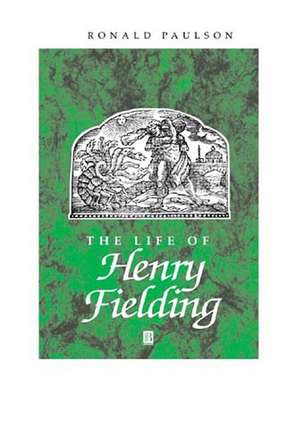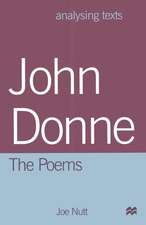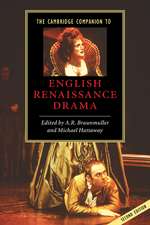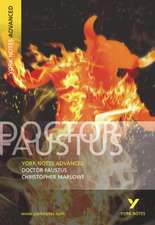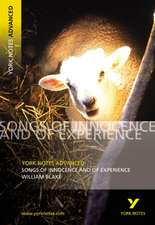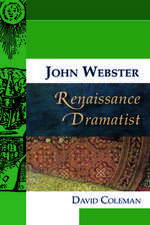The Life of Henry Fielding: A Critical Biography: Wiley Blackwell Critical Biographies
Autor R Paulsonen Limba Engleză Hardback – 13 ian 2000
In this important new critical biography, Ronald Paulson brilliantly demonstrates how Fielding's life and writings evolved according to his experiments with different professions. It is not sufficient to say that he moved from one literary genre to the next, from drama to essay, from satire to novel. As a playwright and theater manager he thematized the theater and its workings in his writings, moving on to do the same as a journalist, barrister, and finally magistrate. Tom Jones, for example, can be interpreted as a self-projection, seen from the perspective of a barrister, an advocate for the defense; or Billy Booth as a conflation of the author and his father, seen now from the perspective of a grim but just magistrate.
Each chapter in this intriguing book begins with an annotated chronology of the known facts, followed by analyses of the important issues. Paulson's account will be essential reading for all admirers of Fielding as well as serious students of his work.
Din seria Wiley Blackwell Critical Biographies
- 9%
 Preț: 967.97 lei
Preț: 967.97 lei - 9%
 Preț: 838.80 lei
Preț: 838.80 lei -
 Preț: 274.51 lei
Preț: 274.51 lei - 9%
 Preț: 685.15 lei
Preț: 685.15 lei - 9%
 Preț: 724.36 lei
Preț: 724.36 lei -
 Preț: 329.23 lei
Preț: 329.23 lei -
 Preț: 333.20 lei
Preț: 333.20 lei -
 Preț: 454.03 lei
Preț: 454.03 lei -
 Preț: 461.72 lei
Preț: 461.72 lei - 23%
 Preț: 427.43 lei
Preț: 427.43 lei - 27%
 Preț: 709.00 lei
Preț: 709.00 lei - 23%
 Preț: 677.89 lei
Preț: 677.89 lei -
 Preț: 506.81 lei
Preț: 506.81 lei -
 Preț: 449.84 lei
Preț: 449.84 lei -
 Preț: 466.17 lei
Preț: 466.17 lei -
 Preț: 451.91 lei
Preț: 451.91 lei -
 Preț: 457.13 lei
Preț: 457.13 lei -
 Preț: 457.13 lei
Preț: 457.13 lei - 32%
 Preț: 510.18 lei
Preț: 510.18 lei - 29%
 Preț: 417.61 lei
Preț: 417.61 lei - 28%
 Preț: 420.14 lei
Preț: 420.14 lei - 25%
 Preț: 256.76 lei
Preț: 256.76 lei
Preț: 711.25 lei
Preț vechi: 974.32 lei
-27% Nou
136.10€ • 145.54$ • 113.48£
Carte tipărită la comandă
Livrare economică 17 aprilie-01 mai
Specificații
ISBN-10: 0631191461
Pagini: 414
Dimensiuni: 167 x 236 x 33 mm
Greutate: 0.76 kg
Editura: Wiley
Seria Wiley Blackwell Critical Biographies
Locul publicării:Chichester, United Kingdom
